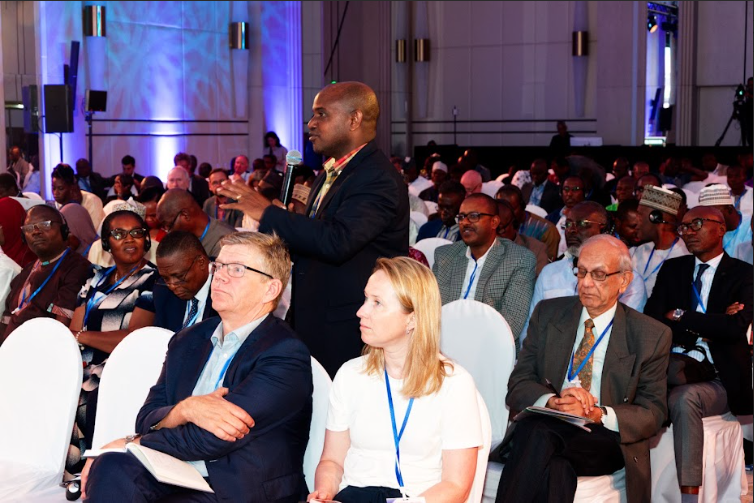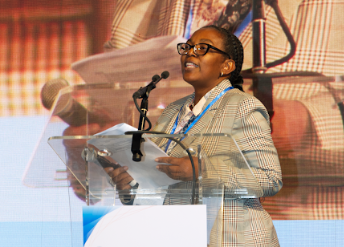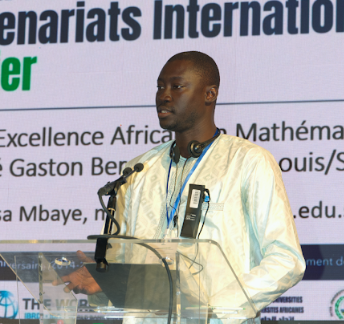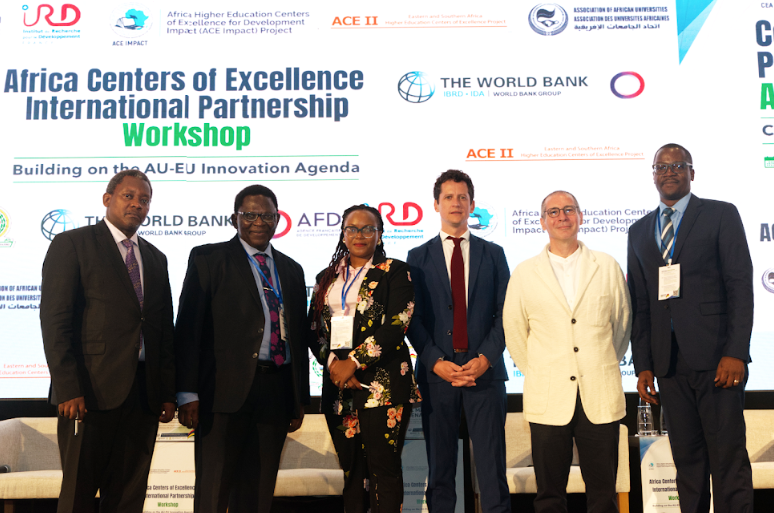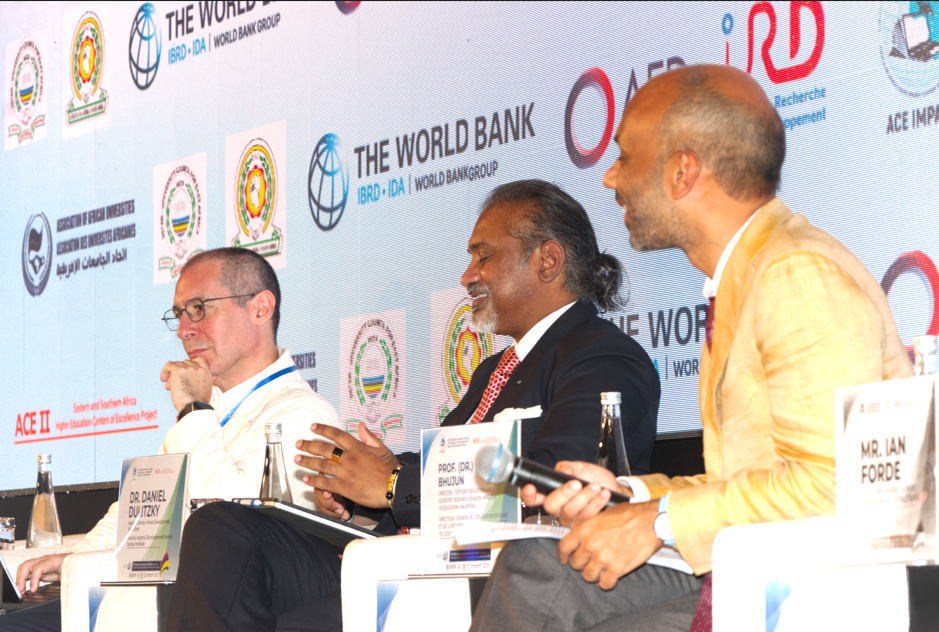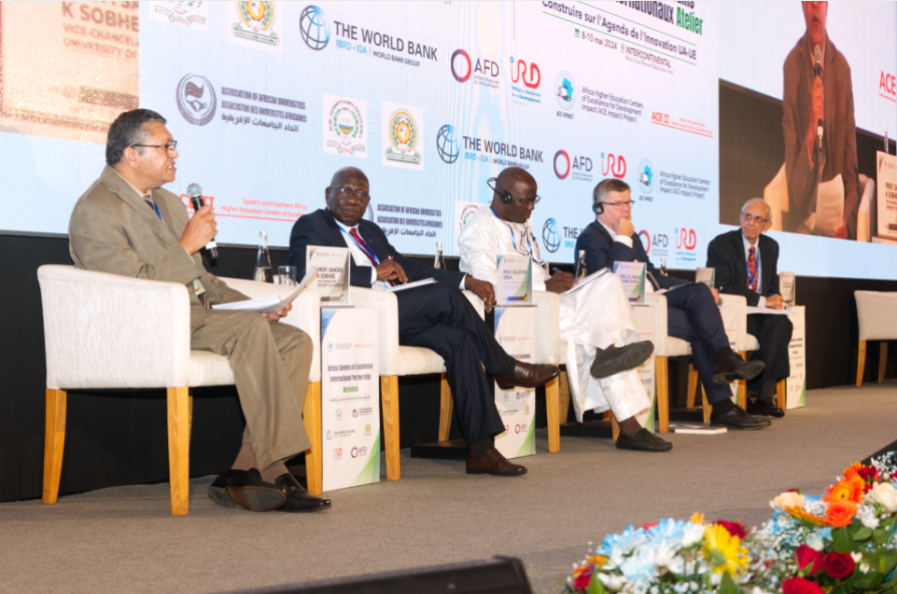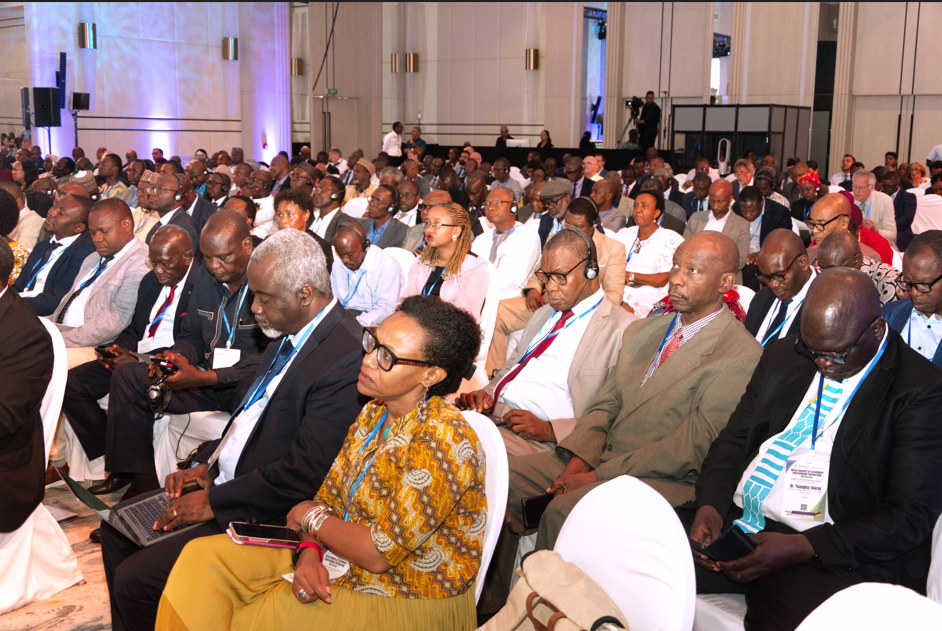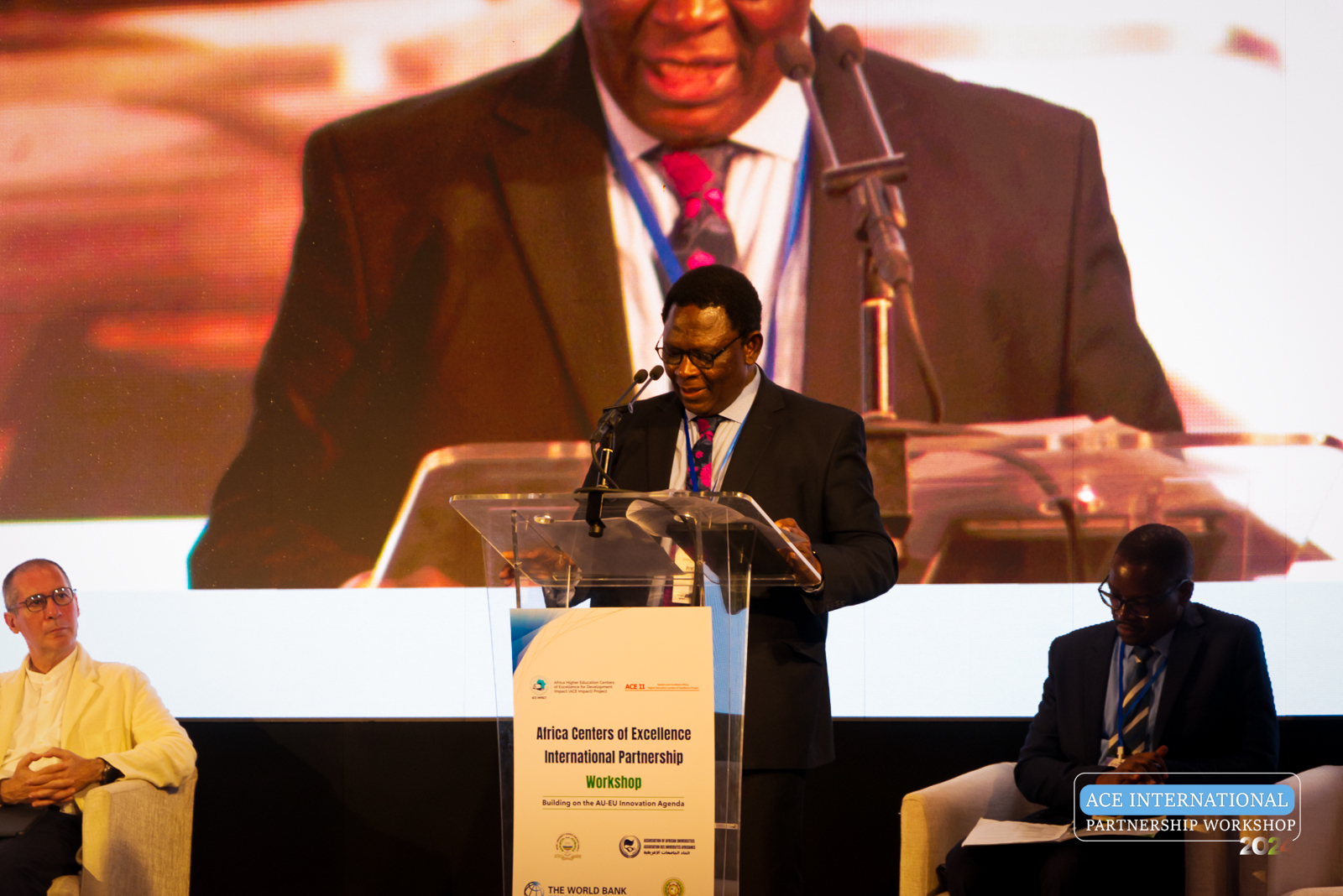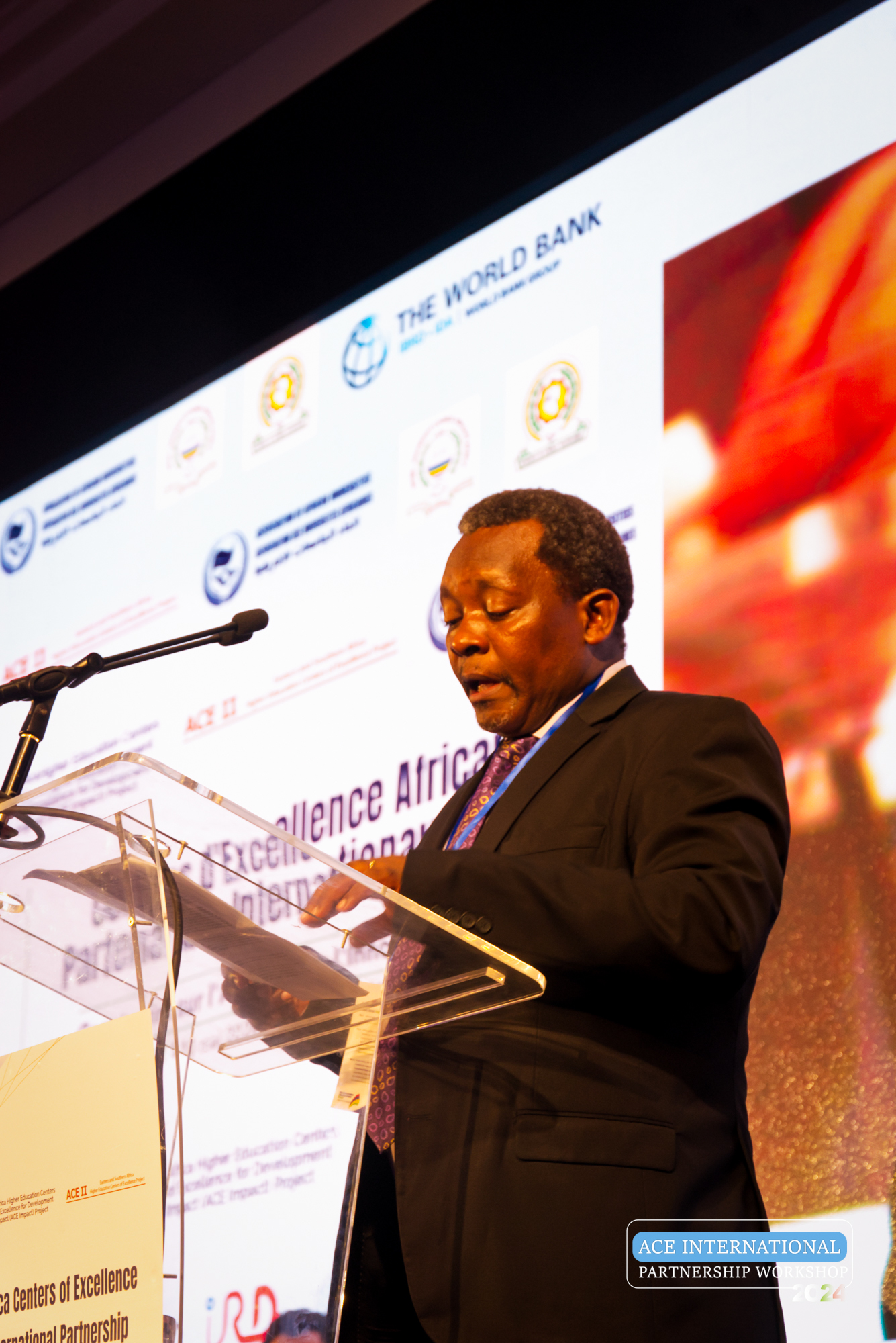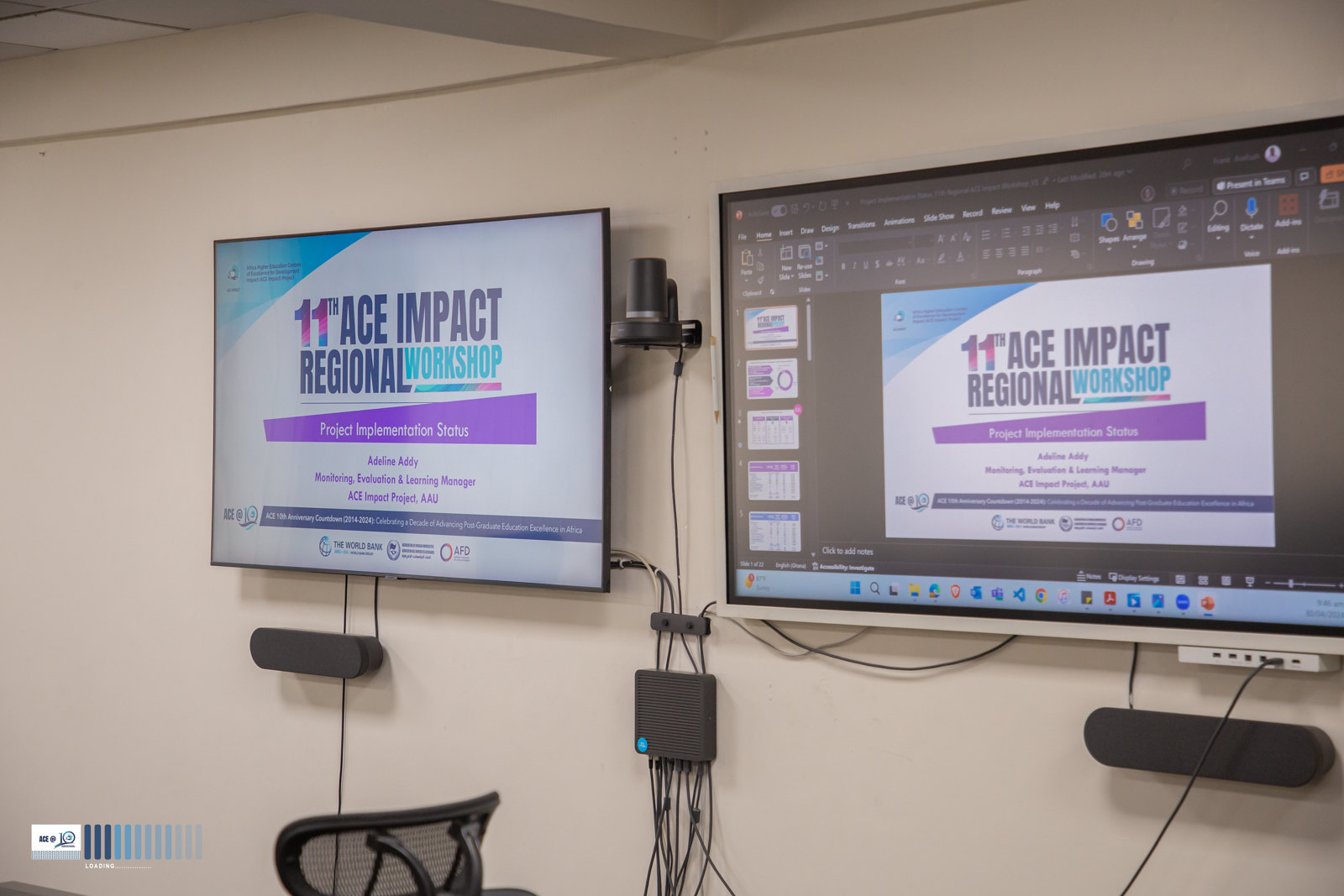ACE Partner Initiative Aligns with ACE Project Expectations
The establishment of 54 Africa Higher Education Centres of Excellence (ACEs) across eleven West African countries and Djibouti, under the Africa Higher Education Centres of Excellence Project marked a significant milestone in strengthening the capacities of African universities. The Africa Higher Education Centres of Excellence for Development Impact (ACE Impact) an initiative, aimed at offering quality training and research for development, recognised the necessity of creating partnerships and collaborations with international universities and research centers, to extend its primary mandate of enhancing postgraduate education in Africa.
As a strategy for partnering and collaboration, the ACE Partner project was conceived and designed by the World Bank, the Association of African Universities (AAU), the French Development Agency (AFD), the Institut de Recherche pour le Développement (Research Institute for Development) – IRD, and the National Institute for Research in Digital Science and Technology (Inria), France. The primary objective of the project is to foster the positive influence and effective collaboration of thematic research networks among the ACEs. This involves engaging key stakeholders on issues related to promoting quality education and research while addressing essential national and regional development challenges.
Supported by a financial contribution of 6-million Euros from the World Bank, AFD, and IRD, with an additional in-kind contribution of 700,000 Euros from Inria, the ACE Partner project has made considerable progress. The project comprises 23 ACEs across West African countries, including Senegal, Ivory Coast, Benin, Ghana, Niger, Nigeria, Guinea, and Burkina Faso. These centres are organized into four thematic networks: Sustainable Water Management (RES’EAU), Responsible Mining and Sustainable Development (AMR2D), Digital Science and Technology Network (DSTN), and the Network of African Centres of Excellence on Infectious Diseases (WANIDA). Each network focuses on addressing specific regional and global challenges, fostering collaboration, and advancing research and innovation in their respective fields.
A significant highlight of the initiative’s status and activities was presented during the ACE International Partnership Workshop held in Mauritius from May 8 to 10, which where a dedicated session showcased key achievements, findings, and lessons learned. Led by Dr. Hélène Kirchner, Research Director at the National Institute for Research in Digital Science and Technology (Inria), the ACE Partner initiative has reached impressive milestones over the past four years, focusing on building synergies, launching joint actions, and ensuring sustainability.
Key Achievements
In 2021, the ACE Partner initiative prioritized creating strong synergies among participating ACEs. This exercise involved forging robust scientific links, setting up an action plan, and establishing concrete collaborations. Efforts were also directed toward establishing governance structures, seeking synergies, enhancing mutual knowledge, and strengthening trust among the centres.
Havingestablished these, the initiative moved to launch joint actions in 2022. This phase featured research collaborations, international co-publications, co-supervision of thesis grants, and joint scientific projects. Additionally, key components included hosting training sessions, organizing and participating in international scientific events like COP 21, engaging with the socio-economic environment, fundraising, lobbying, and expanding networks.
Since the funding duration for the ACE Partner initiative was set to end in February 2024, sustainability became a critical focus in 2023. Networks began putting together joint responses to local, national, and international calls for proposals such as ARISE, Erasmus, MOBAF, IDF, NIH, NSF, and from institutions such as Wellcome Trust, and the Bill and Melinda Gates Foundation. Other efforts included developing joint actions, committing to regional and transdisciplinary actions around the SDGs, promoting pan-African research on the international stage, and sharing a global vision on pressing issues.
The ACE Partner project has recorded remarkable results, including 52 fellowships, 40 research projects with ACEs, 73 publications, 8 startup projects, 61 training sessions organized with ACEs, and 4.4 million Euros raised in externally generated funds.
The initiative’s purpose was to understand and work to meet ACE Impact’s expectations including facilitating mobility for researchers and students, fostering collaborative research projects and securing inter-ACE theses grants for researchers and students. Other’s included fostering collaborative research projects and seeking funding and international collaborations, providing capacity building for ACEs, such as training in preparing responses to calls for tender, pooling resources and sharing experiences between ACEs, as well as supporting the achievement of ACE Impact initiatives. ACE Partner has effectively met these expectations, as evidenced by its accomplishments in building synergies, launching joint actions, achieving project results, and working to ensure its sustainability.
Findings
To assess the ACE Partner’s impact on the participating ACEs and the prospects for sustaining its networks, an internal assessment survey was conducted to obtain feedback and perspectives from ACEs. The survey covered five areas: research, resource sharing, higher education, transfer and innovation, and sustainability.
The survey results indicated that Research was rated at 72%, Resource Sharing at 53%, Sustainability at 49%, Higher Education at 47%, and Transfer and Innovation at 43%. Overall, the initiative received positive feedback, with 43% and 33% of responses from ACEs respectively indicating a strong impact on the centres. Only 5% of respondents reported little impact on the project, marking a positive assessment of the initiative’s impact.
Lessons Learned
The respondents’ feedback provided a clear mandate for the continuation of certain activities. Specifically, the Higher Education Impact assessment revealed that training and mobility initiatives were strongly endorsed for continuation. Additionally, the Research impact assessment showed high ratings for the joint response to national, regional, and international tenders, inter-ACE research projects, master’s and thesis scholarships, workshops on priority themes for networks, research capacity-building workshops, and joint publications, signalling their relevance and importance.
In the area of Knowledge Transfer and Innovation, the survey’s responses strongly emphasized the importance of organizing university-industry development workshops to disseminate research-innovation results. There was also a call for the creation of collaborative workspaces, such as open labs, where researchers and students can experiment and develop innovative ideas. Additionally, collaboration between university knowledge transfer and innovation departments was highlighted as crucial. Respondents recommended setting up programmes that allow students and researchers to receive input from industry experts to direct their research toward practical applications.
Regarding Seeking Funding, respondents suggested the allocation of resources to support innovative projects through grants or funding competitions. They also emphasized the importance of joint R&D activities and industry collaboration and the potential for joint patents resulting from research grants awarded by the network.
Regarding Sustainability, activities that survey respondents appreciated and recommended to be continued include the identification of regional and international funding opportunities, joint applications for international calls, capacity-building activities, and support in drafting responses to tenders. These activities are seen as crucial for the continued success and impact of the initiative, ensuring its long-term sustainability and effectiveness.
During the presentation, Dr. Hélène Kirchner, the Research Director at the National Institute for Research in Digital Science and Technology (Inria) indicated that within the ACE Partner project, core networks had been built and consolidated, and the focus on network sustainability had begun. She, however, emphasized the need to strengthen the networks’ autonomy and sustainability in operational activities and financing.
The presentation highlighted several challenges ahead, despite the project’s success. These include uneven and limited access to connectivity, the co-construction of university-industry projects, developing international contacts, resource sharing, training for support services, positioning of the ACE within the university, and the socio-economic environment of the participating ACEs. Additionally, matching training to socio-economic challenges such as healthcare, cyber-security, artificial intelligence (AI), and the climate crisis were emphasized as areas needing further attention and development.
The ACE International Partnership workshop served as a platform for network coordinators to share their experiences. Axel Belemtougri, the RES’EAU Coordinator, commended the project for fostering collaboration in training, resource sharing, and innovation. While acknowledging the strong individual capabilities of each centre, Belemtougri highlighted that collaboration leads to even greater success, particularly in securing research grants through joint bids.
The importance of collaboration took centre stage as Dr. Manfreddy BINYET, the WANIDA Coordinator, highlighted the borderless nature of infectious diseases. She emphasized that collaborative research holds immense power in generating impactful results that ultimately inform sound policy decisions. This sentiment echoed the core value of the ACE Partner initiative, fostering collaboration for greater impact.
Nicaise Ndam, a scientific referent for WANIDA, further underscored this notion by urging the networks to prioritize long-term sustainability. He reassured them of continued support from scientific partners, emphasizing their commitment to aiding the networks in achieving this goal.
AAU’s Secretary General, Prof. Olusola Oyewole, who moderated the discussion, enquired about strategies for establishing new networks. In response, Dr. Hélène Kirchner explained that this community should be built on shared goals, clear procedures for collaboration, and a commitment to ongoing evaluation and accountability.
The session ignited a call for the non-participating ACEs to form new partnerships and networks amongst themselves as such collaboration platforms have the potential to significantly expand the project’s influence, strengthening the African research landscape to tackle challenges that transcend thematic boundaries.

